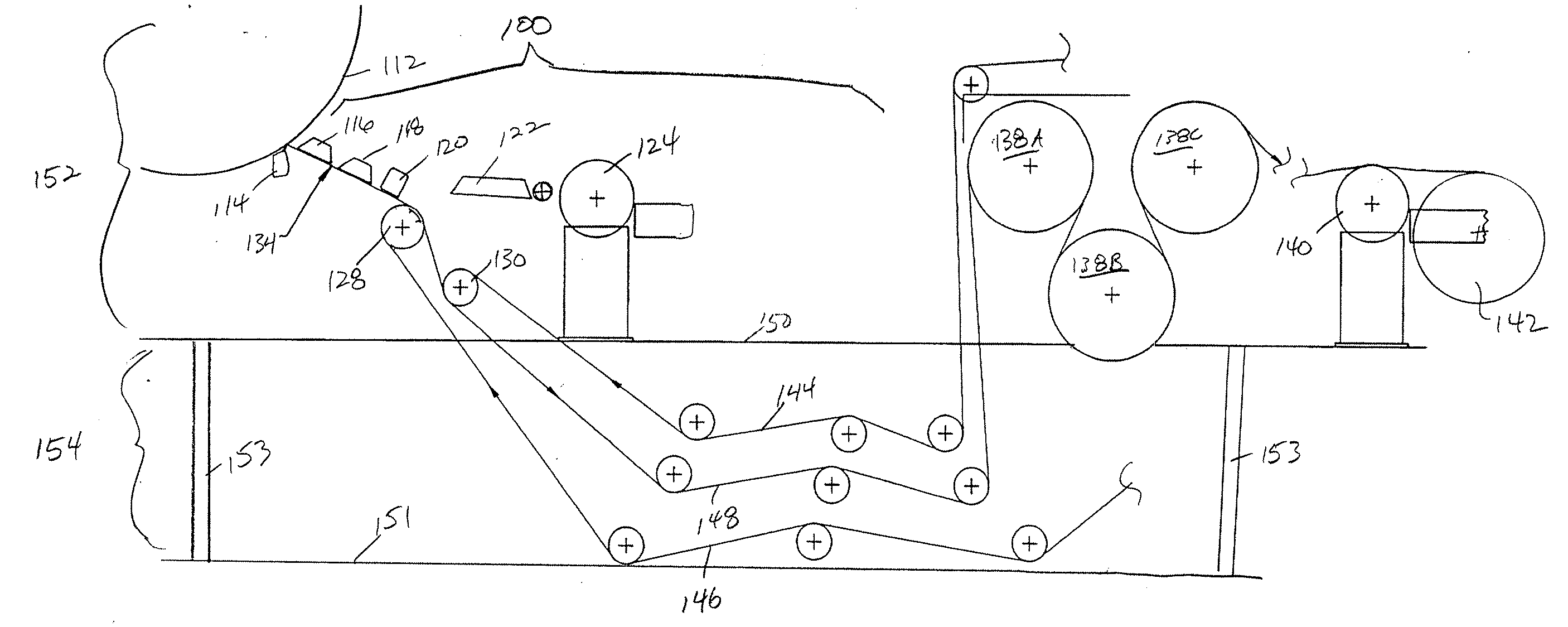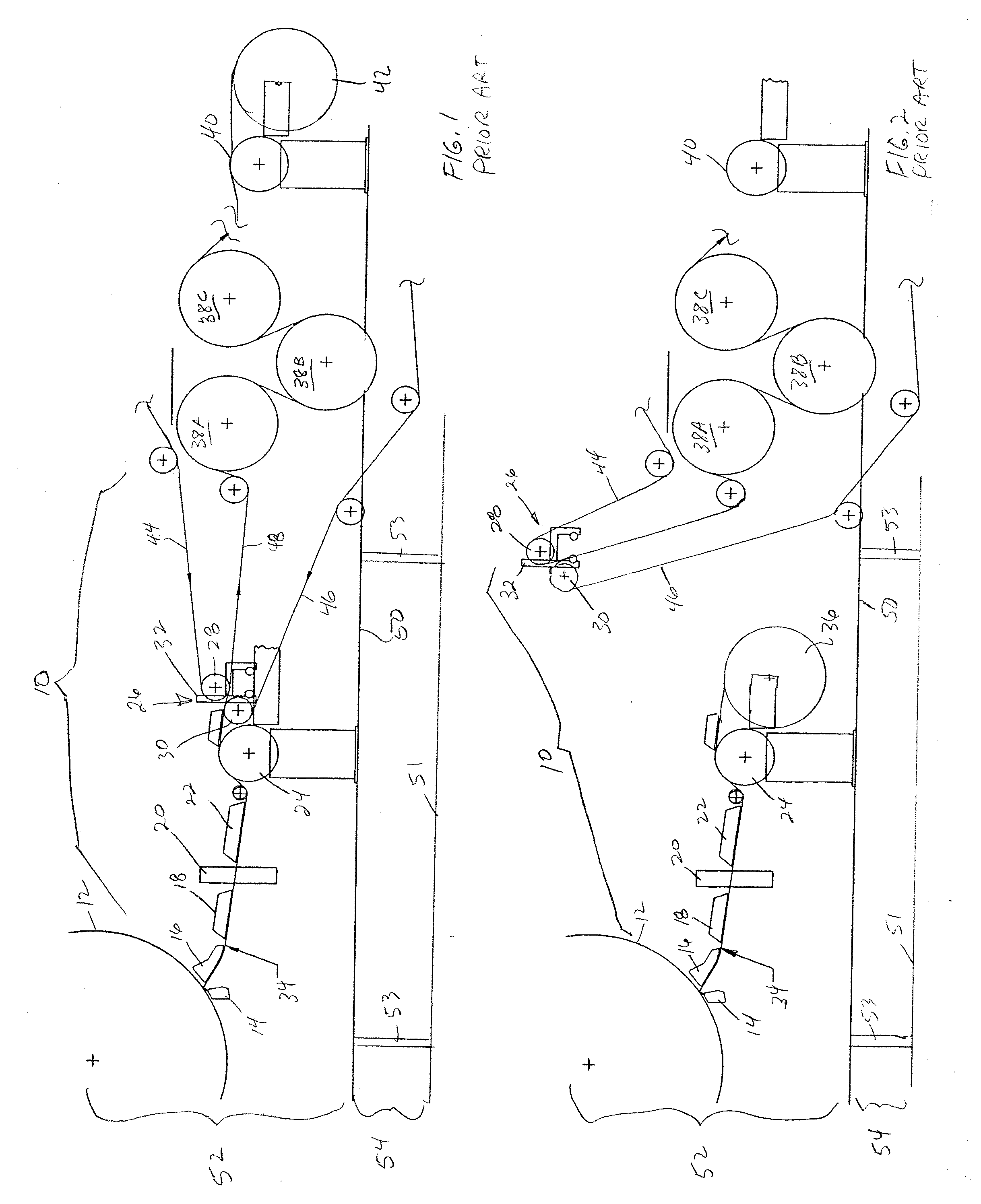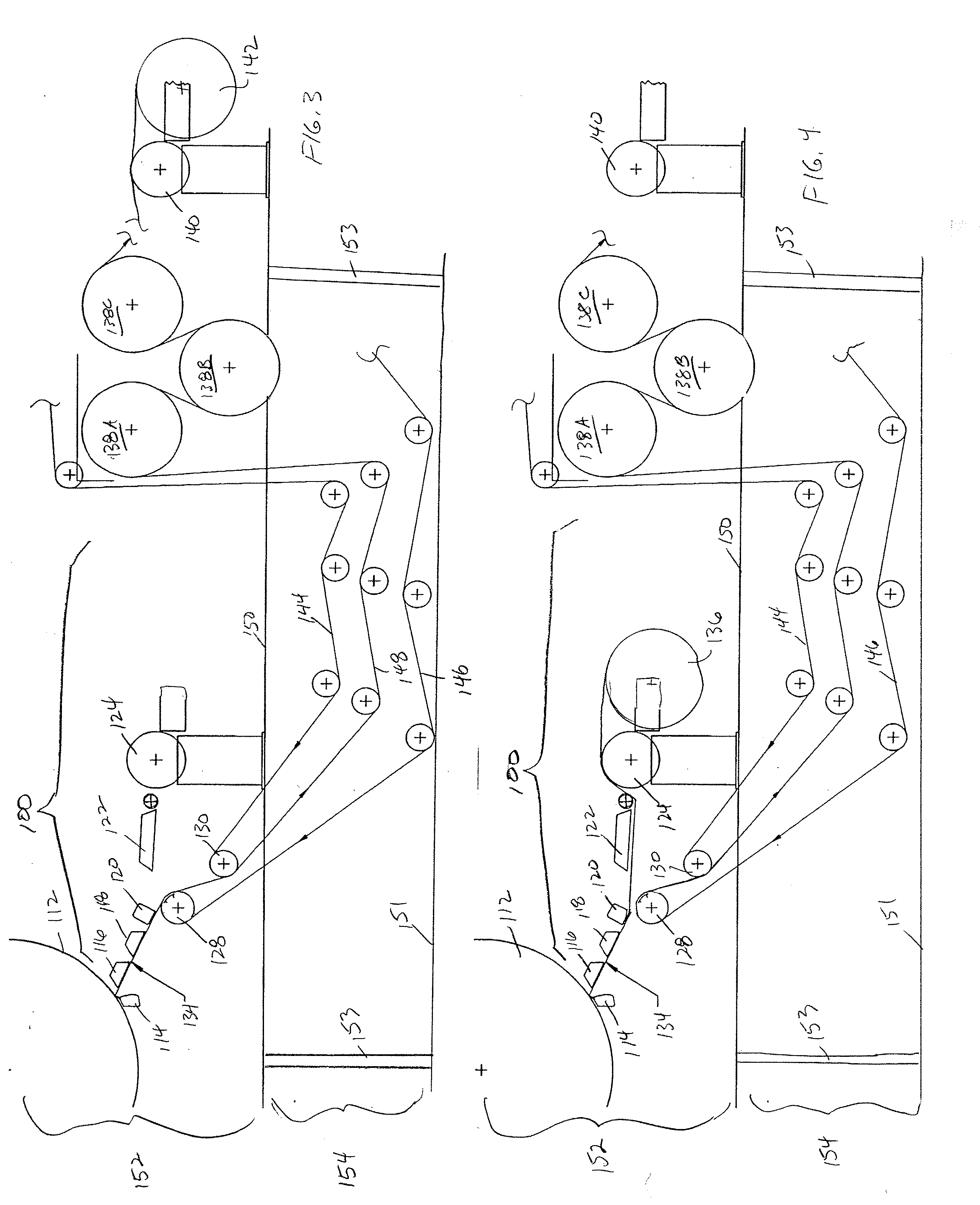Wet/dry crepe swing paper machinery
a swinging, wet technology, applied in the field of wet/dry crepe swinging paper machinery, can solve the problems of increasing the bulk of the paper web, increasing the weight of each component, and requiring a large amount of time to move, so as to achieve the effect of time and cost required for changing
- Summary
- Abstract
- Description
- Claims
- Application Information
AI Technical Summary
Benefits of technology
Problems solved by technology
Method used
Image
Examples
Embodiment Construction
[0017]The following description, with reference to the attached drawings, provides a description of several embodiments of portions of a paper machinery set in arrangements for manufacturing dry crepe paper and arrangements for manufacturing wet crepe paper. The ability to change between the various arrangements can result in increased efficiency in both cost and time associated with changing the paper machinery for handling wet and dry crepe paper.
I. General Background
[0018]Tissue paper typically has about 2 to about 10 layers of fiber, and most commonly about 2 to about 5 layers of fiber. Tissue paper is usually made with a wet tensile strength that permits the tissue paper to pull apart relatively easily when made wet. Towel paper typically has about 15 to 30 layers of fibers, and most commonly about 20 to about 25 layers of fibers. Towel paper is usually made to a wet tensile strength that resists pulling apart when made wet. Paper wet tensile strength is affected by, for exampl...
PUM
 Login to View More
Login to View More Abstract
Description
Claims
Application Information
 Login to View More
Login to View More - R&D
- Intellectual Property
- Life Sciences
- Materials
- Tech Scout
- Unparalleled Data Quality
- Higher Quality Content
- 60% Fewer Hallucinations
Browse by: Latest US Patents, China's latest patents, Technical Efficacy Thesaurus, Application Domain, Technology Topic, Popular Technical Reports.
© 2025 PatSnap. All rights reserved.Legal|Privacy policy|Modern Slavery Act Transparency Statement|Sitemap|About US| Contact US: help@patsnap.com



